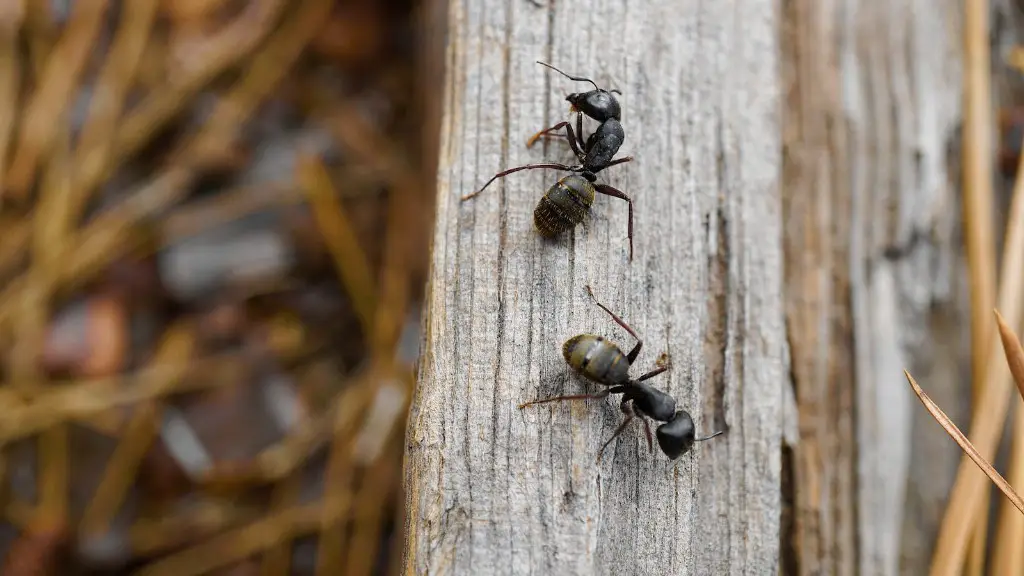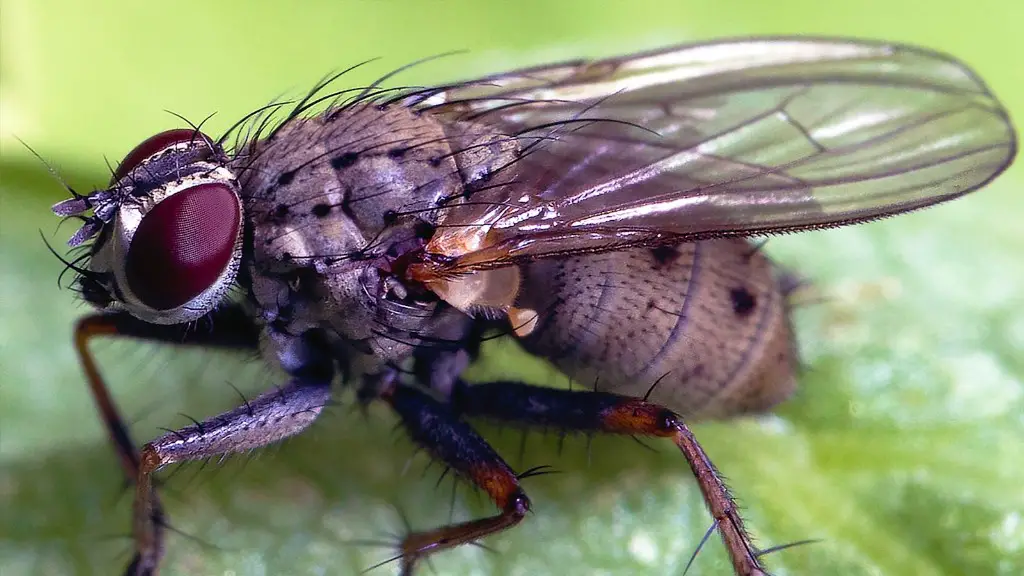Causes of Winter Ant Infestations
Ants can enter homes and buildings in search of food and shelter just as people do during the winter. Food particles such as cereal, bread crumbs, and sweets can attract ants inside from outside. In addition, water sources such as leaking plumbing, water in potted plants and vacant flowerbeds can provide a source for winter ant infestations. All of these elements create an ideal environment for ants to thrive and reproduce.
An important factor driving ants indoors is the change in their habitat from the cold and snow outside. Ants move into the warmth of a home and the protection shelter provides from wind and frost. These conditions are desirable for colonies to continue reproducing and surviving the winter.
Ants are also known to build nest inside walls and floors. In the winter, this is much more likely to occur, as ants search for structural spaces that offer sufficiency of warmth, safety and food sources.
How Can You Get Rid of Ants in Winter?
The first step to getting rid of ants in winter is to make sure your home is properly sealed. This can include caulking around window frames, door frames, and other cracks and crevices outside of the house. Also, regular maintenance of all indoor and outdoor spaces can help reduce possible ant infestations.
The next step to preventing ants in the winter is to eliminate potential food sources for the ants. This includes regularly cleaning surfaces, vacuuming carpets, and wiping up spills quickly. Keeping food stored in containers with lids and sealing pet food containers is also effective.
The use of ant baits can be effective in controlling ant populations. These baits are specially designed to attract ant workers and give them a chance to transport poison back to their nests. The slow-acting toxicity of various ant baits has proven to be very effective in eliminating colonies quickly and safely.
In addition to using ant baits, there are also products on the market that are specifically designed to eliminate ants in the winter. These products use a wide range of pesticide formulations that work to target any kinds of ants that may have infested the home.
Further Prevention of Ants in Winter
Additional prevention tips to keep away ants in the winter include regular inspection of your home, yard and garden for possible ant activity. Look for ant trails, pellet-like droppings, and ants inside the house. Monitoring for these signs will help you identify potential ant infestations before they become out of control.
If you suspect an infestation, contact a professional pest control expert who can help you identify the source and provide effective ant elimination methods. They can also offer advice on how to initiate preventive maintenance that will help keep ants away in the future.
Finally, make sure to clean up debris in the yard or garden that could be providing an ideal home for ants. This includes leaves, twigs, and other plant material. Keeping pathways clear and trimmed can help discourage ant nests and helping to keep your home ant-free.
How to Deal With an Active Infestation
If you have an active ant infestation, the best way to eliminate them is to use insecticides. These products are specifically designed to quickly eliminate ant populations.
The best way to use insecticides to get rid of ants in the winter is to apply them directly to the ants. This includes spraying ant trails, doorways, baseboards, and other places where ants enter the home.
Once the infestation is under control, it is important to maintain good practices that will help prevent future infestations. This includes regular monitoring of your yard, inspecting for potential ant activities, and maintaining clean conditions inside the home.
Best Practices for Ant Control in Winter
When it comes to getting rid of ants in the winter, prevention is always the best approach. Regularly inspecting your home and yard for ant activity is important to help identify potential ant problems.
In addition, regular maintenance of your home can help limit the potential for ants to enter and build nests. This includes sealing all cracks and crevices around windows, doors, and other structural openings, as well as keeping food sealed and stored off of the floor.
Using ant baits to help reduce the ant population can also be a great way to avoid large-scale infestations. These baits are designed with slow-acting toxicity that can effectively eliminate colonies without causing harm to children, pets, and other living things.
Home Remedies for Eliminating Ants
There are several home remedies that can help eliminate ants in the winter. These solutions usually involve using common household items to create natural deterrents to ants.
One of the most popular approaches is using white vinegar mixed with water and sprayed around problem areas. This solution can be sprayed directly onto ant trails, or applied as a perimeter around areas where infiltrations of ants develop.
Another common approach is to sprinkle diatomaceous earth around problem areas. This powder is made from the fossilized remains of algae, and is an effective way to repel and kill ants.
Finally, a solution of baking soda and powdered sugar can be effective in eliminating ants. The sweet taste of the sugar attracts ants, while the acidic nature of the baking soda will help to kill them.
Conclusion
Ants can easily build nests in the winter when temperatures drop and food sources become more limited. In order to get rid of ants in the winter, it is important to take preventive measures such make sure your home is properly sealed. Regularly cleaning and inspecting for ant activity can also help identify and prevent ant infestations.
In cases of active ant infestations, insecticides are the best method for eliminating ant colonies quickly. There are also several home remedies that can help repel and kill ants as well.
No matter which option you choose, it is important to remember that regular maintenance and monitoring will help to ensure that your home remains ant-free during the winter months.

